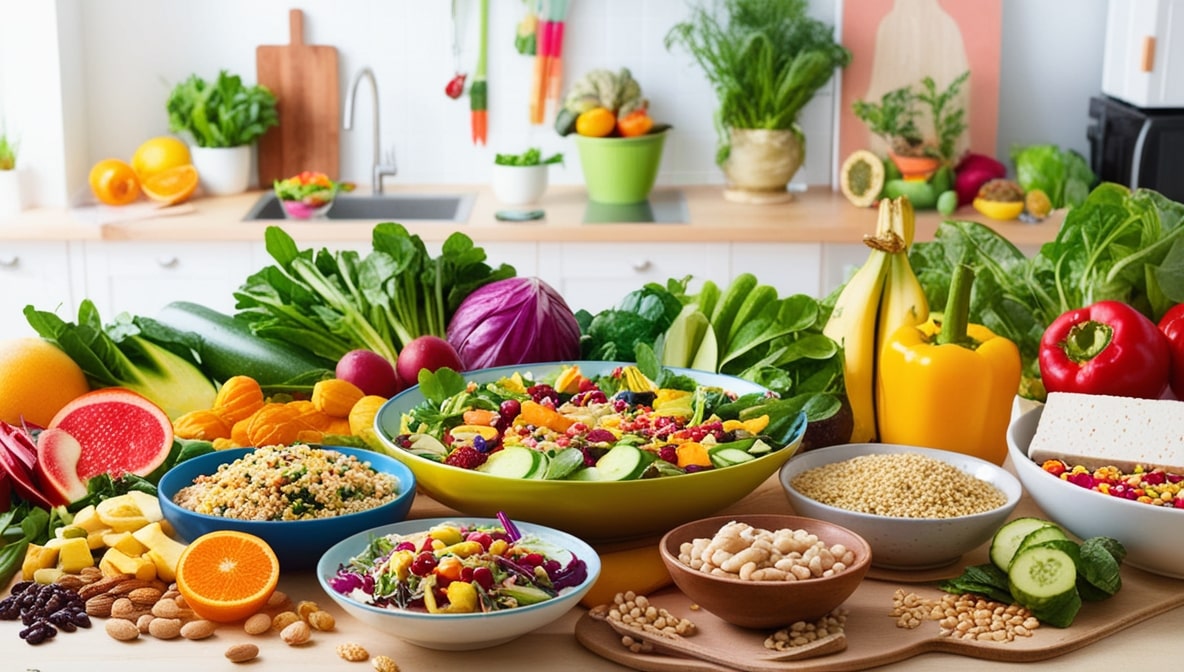Transitioning to a plant-based diet can be a rewarding journey, offering numerous health benefits, environmental sustainability, and ethical satisfaction. Whether you’re looking to make a complete switch or just incorporate more plant-based meals into your routine, here are some practical tips and tricks to help you make the transition smoothly and enjoyably.
1. Start Slowly
Switching to a plant-based diet doesn’t have to happen overnight. Begin by incorporating more plant-based meals into your diet gradually. Start with one or two meatless days per week and gradually increase the number of plant-based meals as you become more comfortable with the change.
Tips:
- Choose familiar recipes and adapt them by substituting meat with plant-based alternatives.
- Explore cuisines that naturally include many plant-based dishes, such as Mediterranean, Indian, and Thai.
2. Educate Yourself
Understanding the nutritional aspects of a plant-based diet is crucial to ensure you’re meeting your dietary needs. Research plant-based sources of essential nutrients like protein, iron, calcium, and vitamin B12.
Tips:
- Read books, watch documentaries, and follow reputable nutrition websites.
- Consider consulting with a registered dietitian to help you plan balanced and nutritious meals.
3. Stock Your Pantry
Having a well-stocked pantry with plant-based staples can make meal preparation easier and more enjoyable. Some key items to keep on hand include:
- Whole grains: Brown rice, quinoa, oats, and whole wheat pasta.
- Legumes: Beans, lentils, chickpeas, and peas.
- Nuts and seeds: Almonds, walnuts, chia seeds, and flaxseeds.
- Plant-based proteins: Tofu, tempeh, and seitan.
- Fresh and frozen fruits and vegetables.
Tips:
- Buy in bulk to save money and reduce packaging waste.
- Experiment with different spices and herbs to add flavor to your dishes.
4. Learn to Cook Plant-Based Meals
Cooking at home allows you to control the ingredients and ensures you’re eating nutritious meals. Start by mastering a few simple plant-based recipes that you enjoy and gradually expand your repertoire.
Tips:
- Invest in a good plant-based cookbook or follow plant-based food blogs and YouTube channels for inspiration.
- Batch cook and freeze meals to save time during busy weeks.
5. Find Plant-Based Alternatives
Transitioning to a plant-based diet doesn’t mean giving up your favorite foods. There are many plant-based alternatives to meat, dairy, and eggs that can help you make the switch without feeling deprived.
Tips:
- Try plant-based milk (almond, soy, oat) and yogurts.
- Use nutritional yeast as a cheese substitute in dishes like pasta and popcorn.
- Experiment with plant-based meat alternatives, but try to focus on whole foods rather than heavily processed products.
6. Focus on Variety
Eating a wide variety of plant-based foods ensures you get a range of nutrients and keeps your meals interesting. Aim to include different fruits, vegetables, grains, and proteins in your diet.
Tips:
- Try new vegetables and fruits each week.
- Incorporate a mix of raw and cooked foods for different textures and flavors.
- Explore plant-based ethnic cuisines for diverse and flavorful dishes.
7. Stay Positive and Patient
Changing your diet is a significant lifestyle shift, and it’s essential to be patient with yourself. There might be challenges along the way, but staying positive and committed to your goals will help you succeed.
Tips:
- Join plant-based communities online or in person for support and encouragement.
- Celebrate your progress, no matter how small.
- Focus on the positive changes you’re experiencing, such as increased energy, better digestion, and improved overall health.
Conclusion
Transitioning to a plant-based diet is a journey that requires patience, planning, and a willingness to explore new foods and flavors. By starting slowly, educating yourself, and focusing on variety, you can make the shift smoothly and enjoy the many benefits of a plant-based lifestyle. Remember, it’s not about perfection but making sustainable changes that work for you. Embrace the process, enjoy the delicious plant-based meals, and take pride in the positive impact you’re making on your health and the environment.

